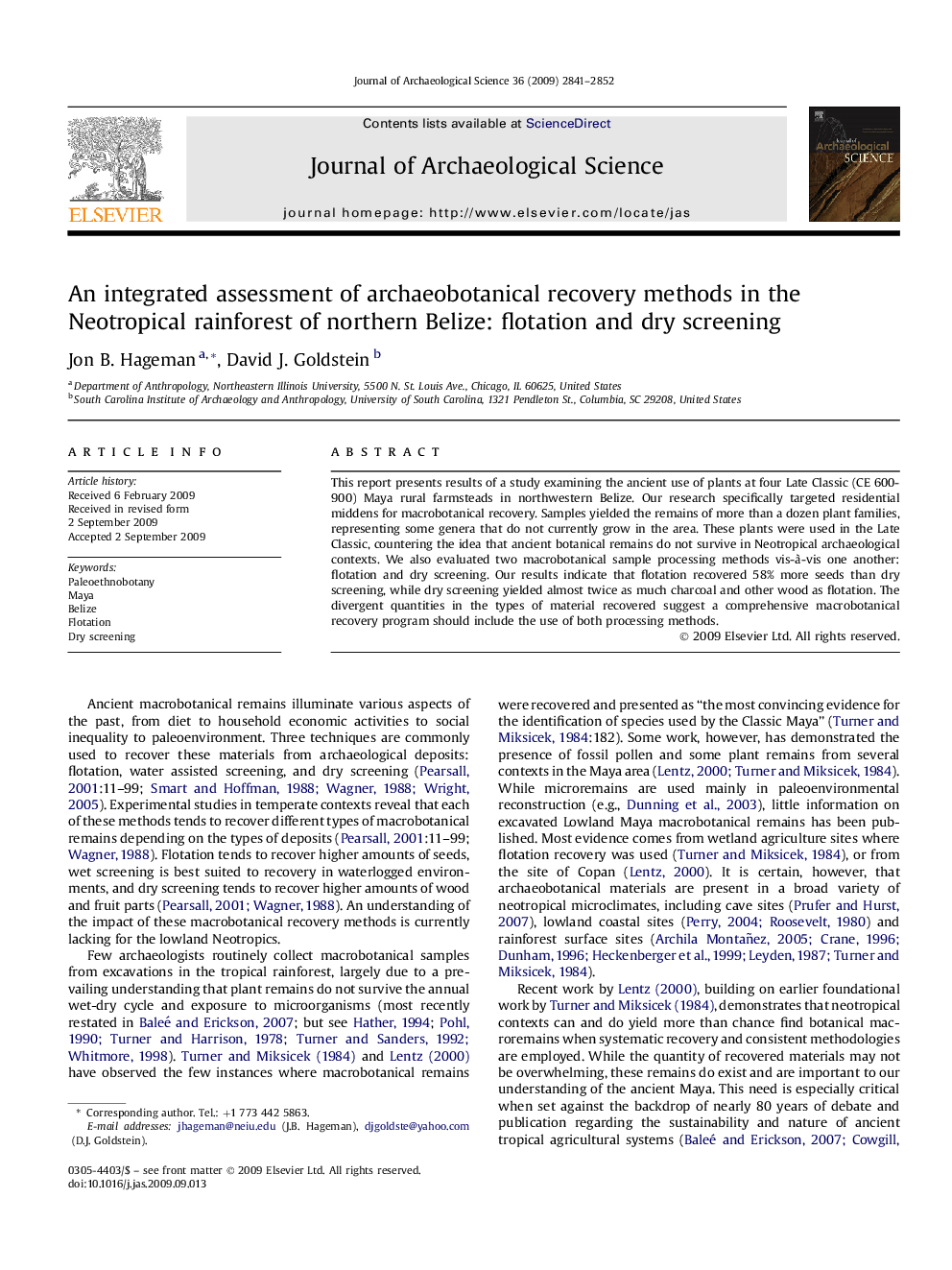| Article ID | Journal | Published Year | Pages | File Type |
|---|---|---|---|---|
| 1036102 | Journal of Archaeological Science | 2009 | 12 Pages |
Abstract
This report presents results of a study examining the ancient use of plants at four Late Classic (CE 600-900) Maya rural farmsteads in northwestern Belize. Our research specifically targeted residential middens for macrobotanical recovery. Samples yielded the remains of more than a dozen plant families, representing some genera that do not currently grow in the area. These plants were used in the Late Classic, countering the idea that ancient botanical remains do not survive in Neotropical archaeological contexts. We also evaluated two macrobotanical sample processing methods vis-Ã -vis one another: flotation and dry screening. Our results indicate that flotation recovered 58% more seeds than dry screening, while dry screening yielded almost twice as much charcoal and other wood as flotation. The divergent quantities in the types of material recovered suggest a comprehensive macrobotanical recovery program should include the use of both processing methods.
Keywords
Related Topics
Physical Sciences and Engineering
Materials Science
Materials Science (General)
Authors
Jon B. Hageman, David J. Goldstein,
